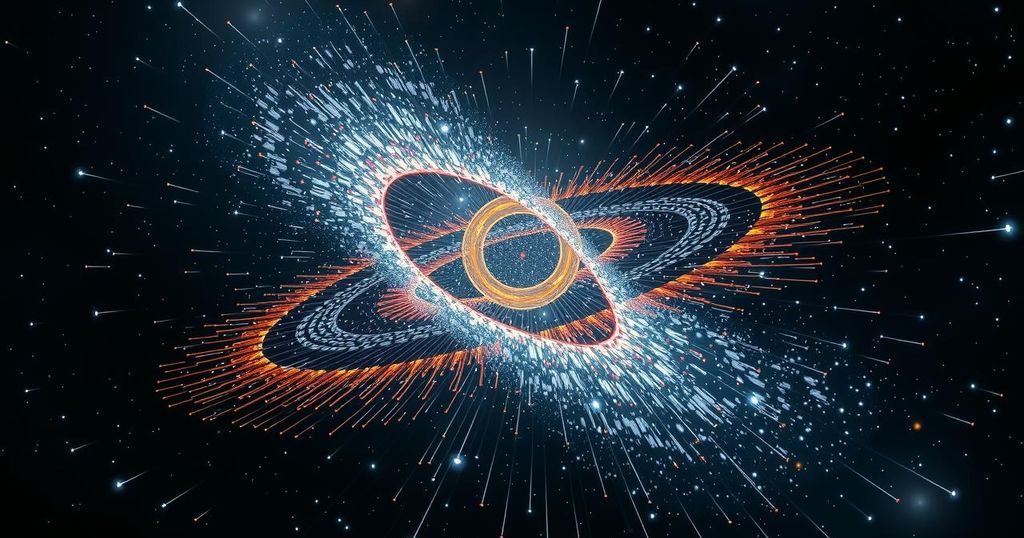Science
Tech
ALBERT EINSTEIN, AMERICAN ASTRONOMICAL SOCIETY, BOUSHAKI, DES, ENERGY SPECTROSCOPIC INSTRUMENT, ENVIRONMENTAL IMPACT, ISHAK, ISHAK - BOUSHAKI, MARYLAND, MUST, NATIONAL HARBOR, RESEARCH, SCHOOL OF NATURAL SCIENCES AND MATHEMATICS, SCIENCE, SPACE EXPLORATION, SUSTAINABILITY, SYSTEM, TECHNOLOGY, UNIVERSITY OF TEXAS AT DALLAS, UT DALLAS
Nina Oliviera
0 Comments
New DESI Findings Reveal Insights into Cosmic Expansion and Gravity
The DESI collaboration, with over 900 scientists, explores cosmic acceleration and gravity using data from nearly 6 million galaxies. The results indicate that Einstein’s theory of relativity is consistent with cosmic behavior and suggest that dark energy is evolving rather than static. Led by Dr. Mustapha Ishak-Boushaki from UT Dallas, this study is a pivotal step in understanding the universe’s expansion.
In a groundbreaking study, the Dark Energy Spectroscopic Instrument (DESI) collaboration has made significant strides in understanding the mysterious force driving the universe’s accelerating expansion. This multi-year international effort involves over 900 scientists, led by Dr. Mustapha Ishak-Boushaki from the University of Texas at Dallas, who has co-authored revealing analyses of cosmic data. The latest findings challenge the notion of modified gravity on cosmic scales, aligning closely with Einstein’s theory of relativity as they scrutinize how galaxies cluster over the last 11 billion years.
The DESI collaboration utilized data from nearly 6 million galaxies and quasars to create the most precise measurement of cosmic structure yet. By capturing light from 5,000 galaxies simultaneously, DESI’s ability to look back in time provides crucial insights into both dark energy’s nature and the dynamic behavior of cosmic acceleration. Ishak-Boushaki noted that their analysis reinforces the idea that dark energy may be evolving, not constant—a pivotal discovery that has implications for our understanding of the universe.
The inquiry into dark energy and gravity’s role in cosmic expansion is one of the most captivating pursuits in modern astrophysics. Dark energy, theorized to be a repulsive force that causes galaxies to recede from one another, contradicts the gravitational pull we observe locally. As scientists gather data through advanced instruments like DESI, they hope to unravel these cosmic mysteries by testing theories against observational evidence. The collaboration aims to clarify how gravity operates across vast distances, probing the very fabric of the universe itself.
The latest DESI results shed light on the ongoing mystery surrounding cosmic acceleration, suggesting a strong alignment with Einstein’s general theory of relativity. While this evidence does not entirely discount alternative theories of gravity, it bolsters the understanding that dark energy may not be a static entity. This innovative research framework broadens our cosmic perspectives, promising future discoveries as the DESI project continues its sky survey.
Original Source: news.utdallas.edu




Post Comment